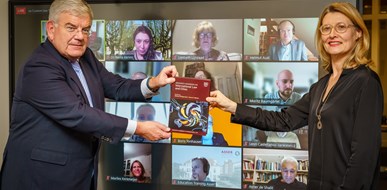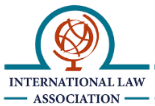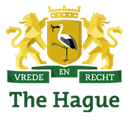[Research handbook launch] Cities and their global networks
Published 19 November 2021
@ Hilko Visser - The Hague mayor Jan van Zanen receives the first copy of the Research Handbook on Cities and International Law from author Janne E. Nijman
On Wednesday the 17th of November, the T.M.C. Asser Instituut celebrated the publication of the Research Handbook on International Law and Cities, edited by Helmut Aust (Freie Universität Berlin) and Janne Nijman (Asser Institute). During the event, the mayor of the Hague, Jan van Zanen, received the first hard copy of the book.
The mayor spoke of the increasing importance of cities and transnational city networks in international governance, and in the tackling of global challenges such as climate change and adaptation, terrorism and security. Following the mayor’s speech, a panel of city network experts and international law scholars further discussed the seminal findings of the Research Handbook on cities and international law. The speakers were:
- Boris Tonhauser, Executive Adviser at PLATFORMA, a network of European local and regional governments and their associations engaged in development cooperation.
- Prof. Dr André Nollkaemper, Professor of International Law, University of Amsterdam, and the Dean of the Amsterdam Law School.
- Prof. Dr Barbara Oomen holds a chair in the Sociology of Human Rights at Utrecht University. She leads the NWO Vici project Cities of Refuge.
- Dr Neila Akrimi Kemperman, PhD in European Development law. Member of the VNG International board of directors.
“I believe that if you want to be an effective local leader, you have to be regional, you have to be a European, and you have to be an international. For world peace, for care, for leaving nowhere no one behind, you need to know about each other. You cannot be a real local if you are not international. And if you are only 'international', where do you walk, - other than in some piece of land that is always local?” - The Hague Mayor Jan van Zanen
"It was great to listen to the Hague mayor, Jan van Zanen. He is heavily involved in global and regional city networks, such as United Cities and Local Governments, and is living the growing role of cities and their networks in international law and global governance. His observations testified moreover to the good timing of the handbook’s publication. Cities are actively engaging with international law and reshaping the global governance landscape. This has also been confirmed earlier this Fall, when UNSG Gutteres presented his report Our Common Agenda in which he called for a stronger involvement of cities in ‘a more networked and inclusive multilateral system’. Thanks to our authors, the handbook makes this growing role of cities visible and examines closely the implications for international law. The panelists provided excellent observations from different angles and pointed to how cities and their networks, by their engagement with international law, are reshaping both urban and global governance." - Janne Nijman (Asser Institute)
About the Research Handbook on International Law & Cities
From climate change, to human rights and from migration to security issues: cities are on the frontline of global challenges. In their new and ground-breaking Research Handbook on International Law and Cities, editors Helmut Aust (Freie Universität Berlin) and Janne E. Nijman (Asser Institute) show the growing importance of the city in international law and governance, and the growing importance of international norms for cities. “No longer just sites of ‘the local’, cities have become spaces where global influences play out, and they have become actors that meaningfully contribute to shaping what we imagine ‘the global’ to be.”
In the Research Handbook on International Law and Cities editors Helmut Aust and Janne E. Nijman - co-chairs to the ILA Study Group on the Role of Cities in International law - shed light on the growing global role of cities, and build the case for a renewed understanding of international law, in light of this ‘urban turn’. Aust and Nijman retrace how cities have gradually developed into internationally relevant actors, how this development started in other research disciplines and how slowly the scholarship of international law has been catching up with this development.
Interdisciplinary group of scholars
The Research Handbook on International Law and Cities (Edward Elgar Publishing, 2021), with contributions from an interdisciplinary group of scholars, maps the practice of cities in various fields of international law, ranging from climate change to human rights, migration, health governance, transportation and security governance. The volume contains a state-of-the-art overview of the literature in the growing field of international law research on cities as actors in international law, and on cities forming transnational networks and being impacted by normative expectations of good urban governance.
The authors further articulate how the turn of the city to the international also finds its limits in international law and institutions. Aust and Nijman argue that it is time to ‘take a further step in the production of international law scholarship towards better understanding how international law is transformed through the growing role of cities’.
Review
‘Aust and Nijman’s Research Handbook on International Law and Cities captures the complexity, and the controversy, of the relationship between cities and international law in all its splendour. It is is a skilfully designed and executed – and coherent – work from the leading legal scholars in the field. The reader is led through the history, structure and many of the current issues in what is an increasingly well-established field, both academically and in practice. There will be many more thematic avenues to explore but the principles and the path are set out here. This book will become a dear friend for many historians, political scientists and lawyers, to name but a few.’
– Robert Lewis-Lettington, UN-Habitat
Event co-organised by the International Law Association and supported by the Municipality of The Hague.


